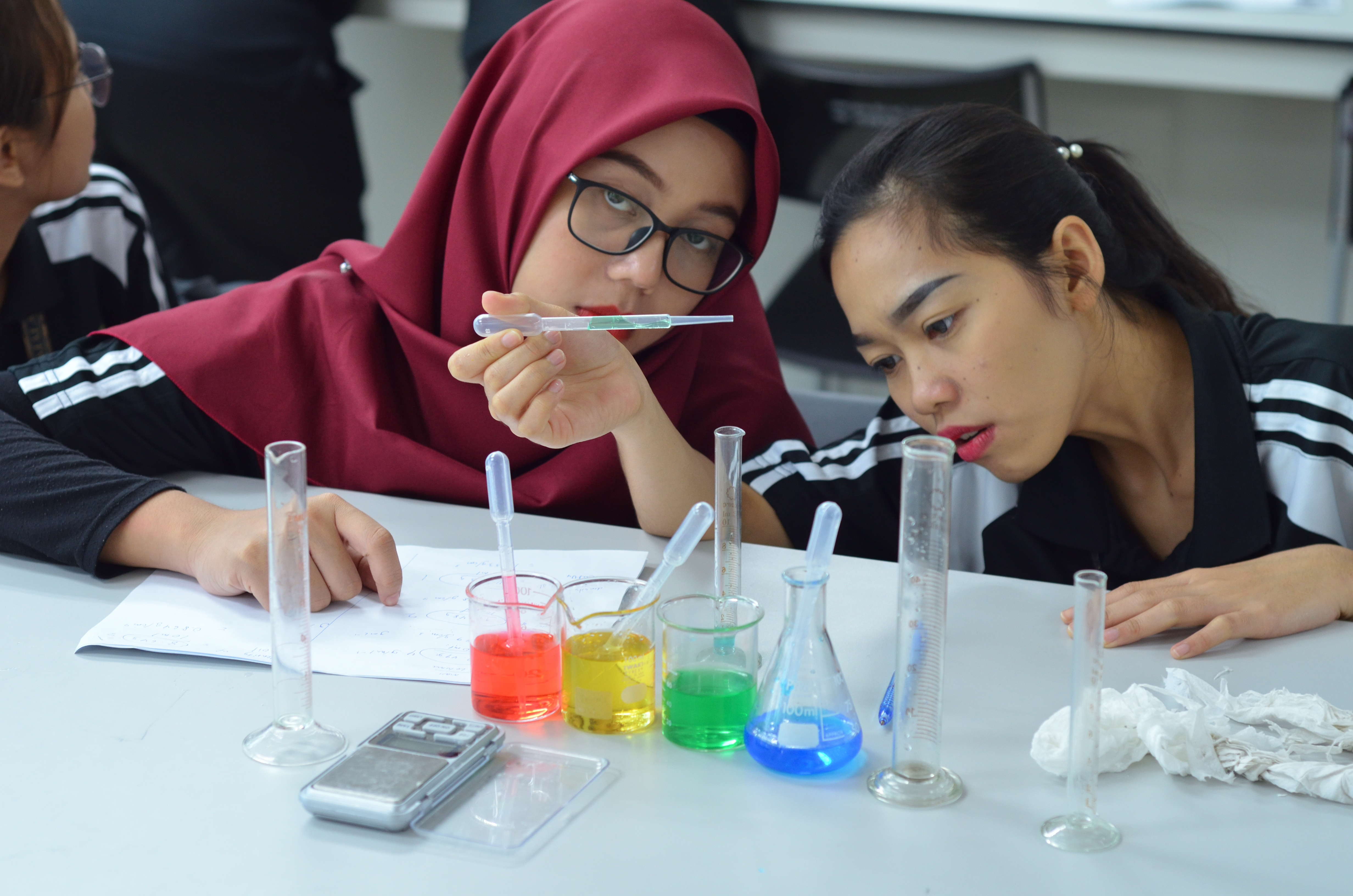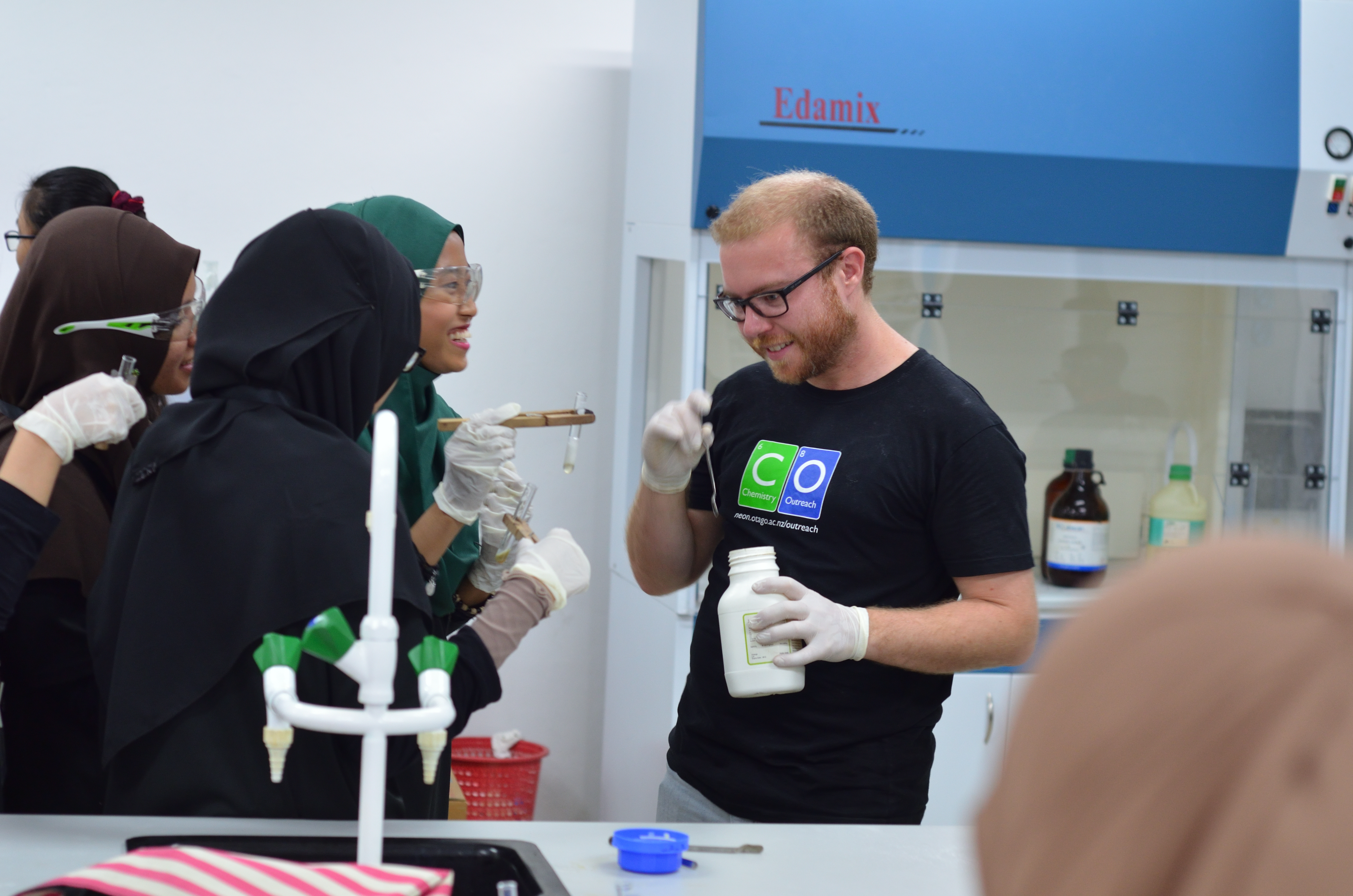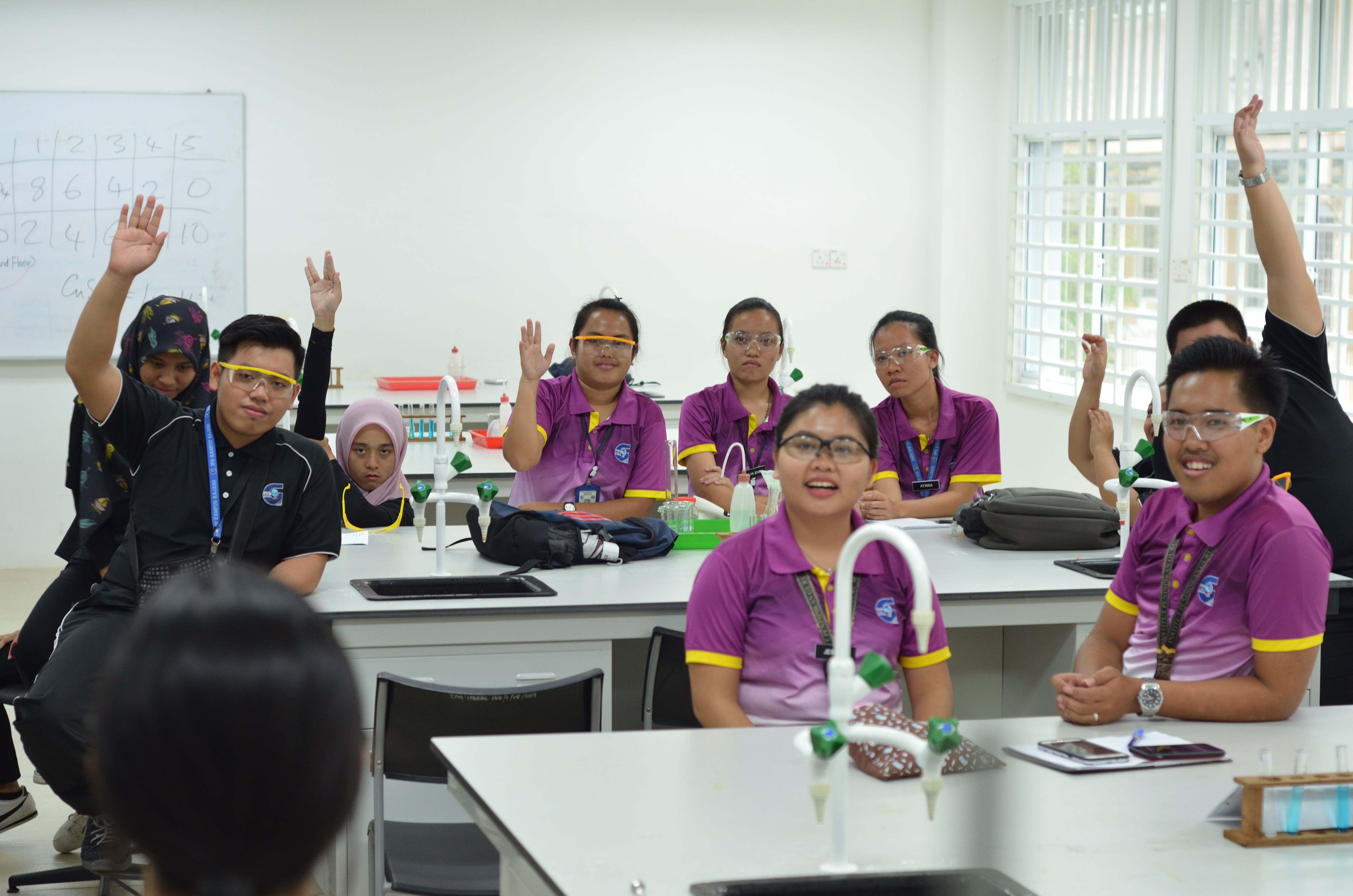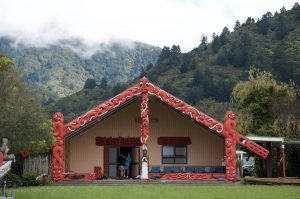The benefits of outreach
I am frequently asked why we do outreach. Apart from the obvious community engagement and our mission to inspire kids and teachers with science there are also several benefits for our own students as well. This video was presentation that I gave about the benefits of outreach around the University “graduate attirubutes”.
The joy of outreach.
Sometimes during outreach events such as those we are doing in Kuching at the moment I have the chance to step back and appreciate what is going on around me. I instinctively look at those in our “audience”, are they focused, are they enjoying it, are they smiling and talking about what they are doing. I listen to the buzz of noise that comes from a classroom of happy students (no matter what their age).
Then I look around at the room and what what is going on, I stand and watch the outreach team working the tables, a helping hand, a suggestion, a joke. All this going on around the room with me in the middle, I often catch myself with an involuntary smile on my face just from the pleasure it brings me to watch young men and women charming their way into the hearts and minds of kids and teachers.
Sometimes the brilliance of the team becomes the norm and I just expect and accept it. Then a stranger from outside the group visit and starts pointing things out to me and I realise what a privilege it is to work with these volunteers who give up their time in order to help inspire the next generation of scientists. The wonder of it all is that it has come about through me just wanting to share something that I love, the joy of seeing kids eyes light up when they see when we share some cool chemistry.
The importance of Science Wānanga: Inspiring Māori students with Chemistry
Opinion piece by Marina Roxburgh
The wharenui (Arapaoa) at Waikawa Marae
Photo Credit: Dr David Warren
I am out the back of the wharenui (meeting house), burning magnesium and iron powders in a small fire when the conversation takes a shift. I have travelled for 6 hours to stay at Waikawa marae (meeting grounds) in rural New Zealand, working with 50 Maori students from the local iwi (tribe). By now, we have all slept in the same room for a week, shared the cleaning and cooking of meals, and spent days carrying out tests on the water quality of the local river. It is the final night of the wānanga (education, meeting) and a few eager students are helping me safely burn the last of our chemicals that I had used to show how fireworks are made.
“Why did you come here?” Asks one student.
“We were asked to by your iwi, and funded by the University of Otago”
“But why us?” She asks
“Because you are worth it” I reply
To me, that is the essence of the Science Wānanga program, showing students that they are worth investing in: anyone can do science anywhere, on a waka, out the back of the kitchen, or in a rundown washhouse. The program aims to inspire and encourage Māori students to take an interest in science, but it is through the nature of the program that I believe we truly accomplish this. We hope to show students that you do not need a fancy lab or flash textbooks, all you require is an interest in the world around you and how things work: from the mechanical to atomic level.
Although the program aims to inspire and encourage Māori students to take an interest in science, scientists such as myself learn a great deal during our stay. Māori traditions of caring for the environment have been passed on for hundreds of years, and through Science Wānanga I have gained a great deal of respect and understanding, encouraging me to learn Te Reo Māori and further educate myself. The relationship Māori have with their environment makes clear that these students already have the background they need to be fantastic scientists. We all have an obligation to invest in their education, and provide any additional support they need to reach their potential.
Before heading to this marae we had spent weeks designing a project that would fit with the local iwi, one that they wanted their tamariki (children) to deeply care about. Together we have scrambled up and down the banks of the river collecting samples of water and meticulously tested them for different trace chemicals. Through this investigation was interwoven the stories of the whenua (land) told by the iwi, giving significance to our work and motivation to the tamariki. We will return to the same place each year, forming a lasting relationship with the iwi and see the same tamariki. I hope to make science not only accessible to rural Māori, but also show them that science isn’t always carried out in a lab with a white coat on, science is all around us in our everyday lives and works alongside mātauranga māori (traditional Māori knowledge).
Contact: mroxburgh@chemistry.otago.ac.nz
Science Wananga Home: http://www.otago.ac.nz/science-wananga/index.html






Recent comments